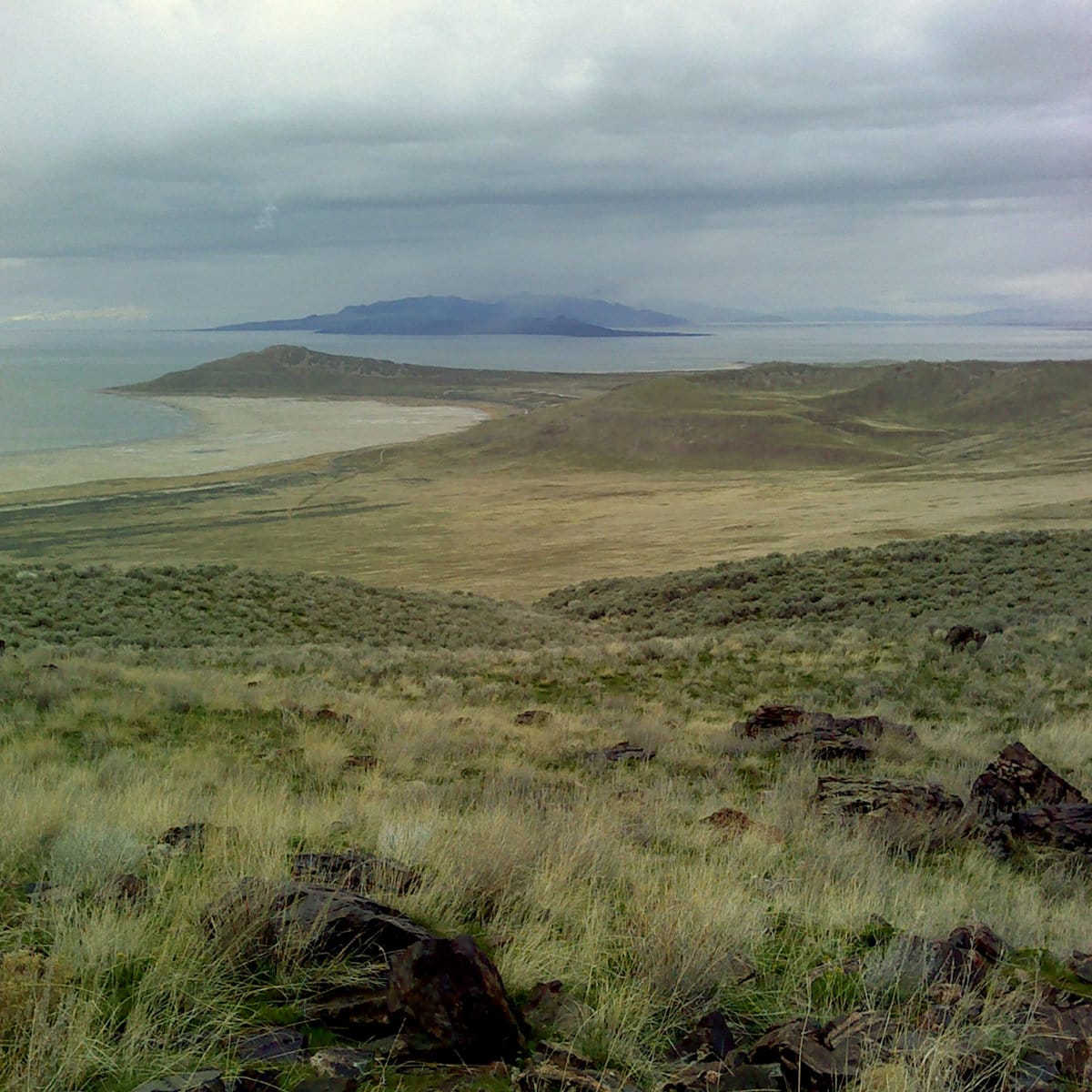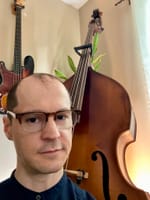Big Moves and Burnout: 2011 - 2014
I made it to Utah. What a beautiful place!

My partner and I arrived in the summer. We were immediately taken by how beautiful the landscape was and how convenient it can be to live in a major city. We enjoyed the dining, the nature trails, and our little walkable neighborhood. However, onboarding to my new role while exciting, proved to be quite challenging.
For the first time, I worked with a company that had a very large service-oriented architecture, complete and well-maintained test suites, well-maintained issue trackers, continuous integration and delivery systems, powerful and full-featured package managers, etc. Essentially, all of the technologies and tools I had read about online but never encountered in the real world because up to then I had worked primarily with a LAMP stack and deployed code manually.
I worked for the first time on a sophisticated ML-driven project. I also collaborated with folks with deep experience with sophisticated tools, very high level of skill, strong commitment to high code quality, and motivation for continuous learning and self-improvement. I was using Clojure, a Lisp language, professionally! I was earning more than I had ever earned in my life which enabled me to afford to buy a car! Paradoxically, I was more stressed than ever before.
My partner and I adopted a puppy and we quickly learned that this required a very difficult adjustment. I put a lot of pressure on myself to grow in my new role and I compared myself unfavorably to my co-workers. Not being of the LDS (Mormon) faith, I felt out-of-place among my primarily LDS colleagues. Commuting 30 minutes on a busy interstate highway added extra stress to both the beginning and end of my day.
I got to a point where I was profoundly unhappy despite having achieved everything I thought that I had to achieve. I had a job that paid well, an advanced degree, a partner, a rental home in a nice neighborhood, a cute doggy, etc. Pressure I felt starting in grade school to succeed and secure a prestigious and reliable job led me to a place where I was somehow the unhappiest I had ever been.
I got to a point where I felt that my life had reached a dead end and I was having tunnel vision during work meetings. The strength in my hands would sometimes fail and I dropped and dented my work laptop.
My life became so challenging that eventually my partner suggested that I try to see a therapist. I saw him only a few times but his suggestion that I try working with an acceptance and commitment therapy workbook brought some immediate relief. As a way to decompress from work and channel some of this intense anxiety, I recorded the work Super Sensitive which got released via the Control Valve music label. To this day, it's one of my favorite pieces of music that I have recorded.

I also came to a realization that my personal interests, education, and training were aligned only with how to do things. Not why they should be done in the first place. This led me to start casually researching philosophy at a high level. I started a survey of light introductory books covering western and eastern philosophy. I found western philosophy too intellectualized and hard to connect with. Aspects of some Eastern philosophy didn’t really resonate with me, but when I encountered Buddhism I was immediately hooked. I could highly relate to its focus on understanding suffering and finding a way out from suffering. I was drawn to the fact that Buddhist practice could integrate with an atheist or agnostic worldview and that it could be interpreted as being practice- rather than faith-oriented.
A number of other experiences all pointed me to become serious about Buddhism. Acceptance and commitment therapy, the modality that my therapist used, was inspired partly by Buddhism. Also, a mindfulness-based stress reduction CD that my partner gave me for my chronic pain was also directly informed by aspects of Buddhist practice.
To add to my Buddhist readings, I started reading self-help books as well. I had actually shared my struggles with my supervisor who also shared that he had times of struggle as well. He recommended several books which I then later supplemented with additional books over the years.
Some benefits of my new job included:
- So much learning!
- The environment promoted personal growth
- I made another great work friend there as well
- I experienced the best pay of any job I had worked at up to that point
- After about a year my partner and I separated and I returned to Gainesville. I asked if I could work remotely and cut my hours and I was grateful when this request was accepted. I got feedback that my productivity was not affected when I reduced my hours.
Job challenges:
- I was hired to work on a new product, an AI-driven SaaS system. The market was not ready for us so I was moved to working on Ruby on Rails applications. However, I would have appreciated a discussion about this project’s failure. It felt odd and a little depressing to have this project silently die.
- I worked in an area that was primarily LDS with coworkers who are primarily LDS. I felt out-of-place and unsure about what I could or could not talk about. At my previous role we talked about politics and current events and it was stressful to feel like there were topics that I couldn’t bring up with my coworkers or supervisor. LGBTQ causes and feminism were important to me and I felt like I couldn’t initiate conversations around these topics.
- While I was working full-time and experiencing great work stress, I felt like I couldn’t dedicate much time to music. I felt like my musical skills were decaying and I felt creatively unfulfilled.
- My supervisor left along with some of my smartest and most productive colleagues. This felt a little like a scary brain-drain situation. I felt a little hurt and judged for not being invited to be a part of this transition.
- I transitioned to a remote role at a time when companies were rarely remote-only. I felt like my team had little experience with remote workers. I would have benefitted from regular one-on-one’s with my new supervisor as well as occasional video chats with colleagues.
- Mostly from the isolation of working remotely and not feeling supported, I started burning out badly again. I had to use the Pomodoro Technique and other strategies every day to stay productive.
- Learning how to install and set up the company's core distributed system was a challenge. There was no all-in-one installer parent project and there was a lack of documentation that resulted in a painful hunt for tribal knowledge.
Eventually I burned out so badly that I felt like I had to change my career entirely. I couldn’t see myself wanting to work in IT anymore. Working 30 hours a week, getting into mindfulness and Eastern spirituality, and having plenty of energy to dedicate to music projects had led me to make connections with folks with life paths very different from mine and this inspired me to take a leap.
I felt like my life path had reached a kind of dead end and the depth of my burnout convinced me that I had to make a huge change in my life. I quit with only my retirement savings to draw from and no job lined up. I went traveling first with my brother and then with a musical collaborator who was also a romantic partner. I was in a state of emotional crisis during this time and not able to communicate my needs in a way that was gentle and kind. As a result, I didn’t make a very good traveling partner.
My plan was to transition to a career as a professional musician. I am a cellist and was one of the only cellists playing folk and popular music in my hometown — I felt kind of like a hotshot. However, during my travels in Spain I attended a music camp and encountered professional cellists with a better grasp of technique and a deeper understanding of music and repertoire than myself. I felt discouraged by this (comparing myself unfavorably to others is something I still struggle with today) and decided to abandon my plans to be a full-time musician. After only a few weeks I realized that I needed to make money. Fortunately my friend Loren who I met at my second job was working in a new role and they needed a contractor. I accepted fifteen hours a week of work because in my state of burnout this was the most I could see myself working in software again.
I had transitioned from moving on a narrow, fear-driven, path focused around career and money to a free-wheeling life of burning through my savings and going deeper into music than ever before. I made lots of new connections and more boldly (recklessly?) asserted my needs. This freedom lent me a sense of ease that enabled me to easily transition into and out of roles.
This period lasted several years and was one of the biggest periods of growth in my personal and professional life. Outside of my software work, I began co-leading meditation groups, I got certified to teach yoga, and I participated in a communication skills intensive. I moved to New Orleans and back to Gainesville. I had found more freedom in my life and experienced many sometimes painful but necessary growth experiences.
This was the beginning of a period of about seven years where I found a way to strike a balance between my tech job and my musical pursuits that let me finally dig deep into music in a way that I hope to get back to one day.
If you are curious at all about Buddhism and Zen, here is a list of books that I discovered and enjoyed during this period.
Part 5 of My Software Journey
Part 4: Finding the Path

Comments ()